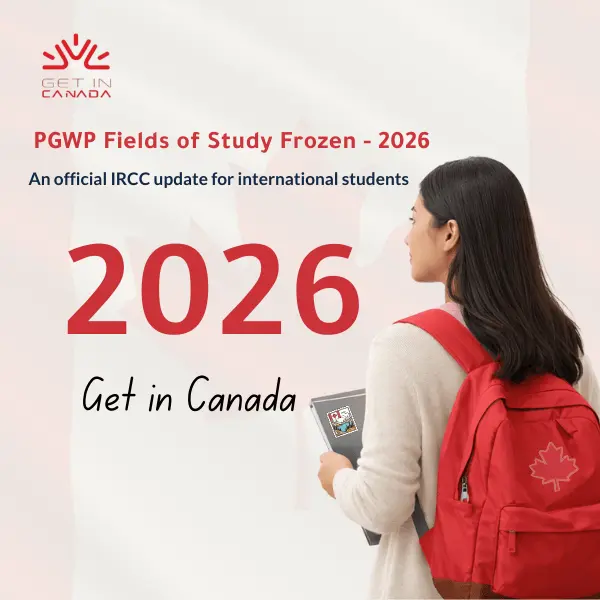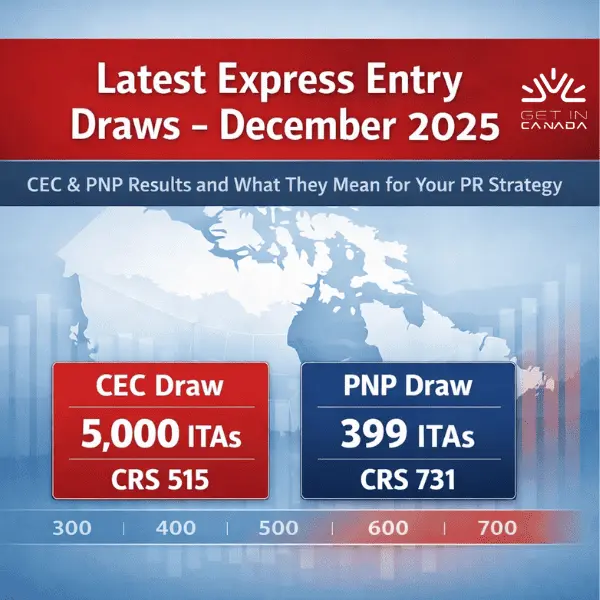Canada pilots program to simplify study permit appeals
If your Canadian study permit was recently denied, then the good news is that you are in the right place. Effective from the 1st of October, the Federal Court of Canada announced the development of a new program through which the appeals that involve rejected study permit applications are much easier to seek. Such an initiative as the Study Permit Pilot Project will be to your advantage as it ensures a faster review of challenging decisions for students like you. In this blog, we’ll take a closer look at how this new program can benefit you in your study journey.

Faster review process for study permit applicants
Let’s discuss more details:
- Speedy Processing: The pilot project is meant to reduce the waiting time for the review of rejected study permits to not more than five months, as is currently taken between 14 and 18 months.
- Simplified Steps: More often the process has two stages:
- An applicant confirms whether he or she can proceed to a review by a judge.
- In the case the permission is granted, the judge proceeds to peruse through the hard and soft files of the case.
However, under the new pilot project, it has been proposed that both part one and part two will be completed simultaneously, which will save time.
- No extra costs: It is free to participate in the project, although the usual $50 fee required for filing a review application will be charged.
Find out if you are eligible to get in Canada →
Who can apply for the Study Permit Pilot Project?
Students can join the Study Permit Pilot Project if they apply for a study permit and get a refusal letter from Immigration, Refugees, and Citizenship Canada (IRCC). Here’s what you need to know about eligibility:
- Agreement to Join: Both the applicant and IRCC must agree to participate in the pilot project.
- Shared Facts: Received and compiled from the documents submitted to IRCC, the two parties have to agree on the fact that he did not meet the visa requirement and understand the full refusal cause.
- Straightforward Issues: The matter connected with the study permit application or refusal may not be complex, there may not be legal and security problems, and there may not be special questions to answer.
- No Time Extension Needed: The applicant should not need to ask for more time to file the Application for Leave.
- No New Evidence: Both parties cannot use affidavit evidence, which is meant to present new information since this is not allowed in the pilot project.
Application Deadlines
The deadlines are as follows:
- Students applying from within Canada have 15 days from when they received their study permit refusal to apply for this project.
- Students applying from outside Canada have 60 days from the refusal date to apply.
How to apply for the Study Permit Pilot Project?
To apply for the Study Permit Pilot Project, follow these simple steps:
- Submit Online: Any papers have to be submitted electronically through the court-specific online system.
- Fill out the Application: To fill out your application for Leave and Judicial Review, use the IR-1 form. It will be necessary to record the information on the pilot project in three particular fields of the form.
- Check Details: For more information concerning applying for this position, click here.
- Wait for the Decision: Once you give your documents, a judge will review your application, and they will inform you of their decision.
Why are the Federal Court and IRCC taking these steps?
The Canadian Federal Court and Immigration, Refugees, and Citizenship Canada (IRCC) are making these changes due to a big rise in requests for leave and judicial review. The Federal Court expects to receive about 24,000 immigration filings by the end of December, which is nearly four times higher than usual before the COVID-19 pandemic.
In 2024, Canada is rolling out new rules to manage the number of international students and graduates in response to affordability and housing issues. IRCC has set a cap of 485,000 new study permits for 2024, mainly affecting undergraduate and college students, while master’s and PhD students will not be affected.
During a press conference on September 18th, Immigration Minister Marc Miller announced several new measures:
- Fewer Permits: The target for new study permits will be cut by 10%, aiming for 437,000 in 2025.
- More Eligible Students: Master’s and PhD students will now be included in the new targets.
- Language Requirements: New language rules will be added for Post-Graduation Work Permits (PGWPs) based on the level of study.
- Specific PGWP Eligibility: Only college students in programs with high job demand can apply for PGWPs.
- Spousal Permit Limits: Eligibility for Spousal Open Work Permits (SOWPs) for master’s students will depend on how long their program is.
The Study Permit Pilot Project from the Canadian Federal Court and IRCC is a helpful improvement for international students whose study permits have been denied. By reducing the appeals wait time from 14-18 months to under five months and offering clear eligibility rules with no extra fees, this initiative provides quick support for applicants. As Canada works to manage the number of international students while addressing affordability and housing issues, this program shows the country’s commitment to welcoming learners.











